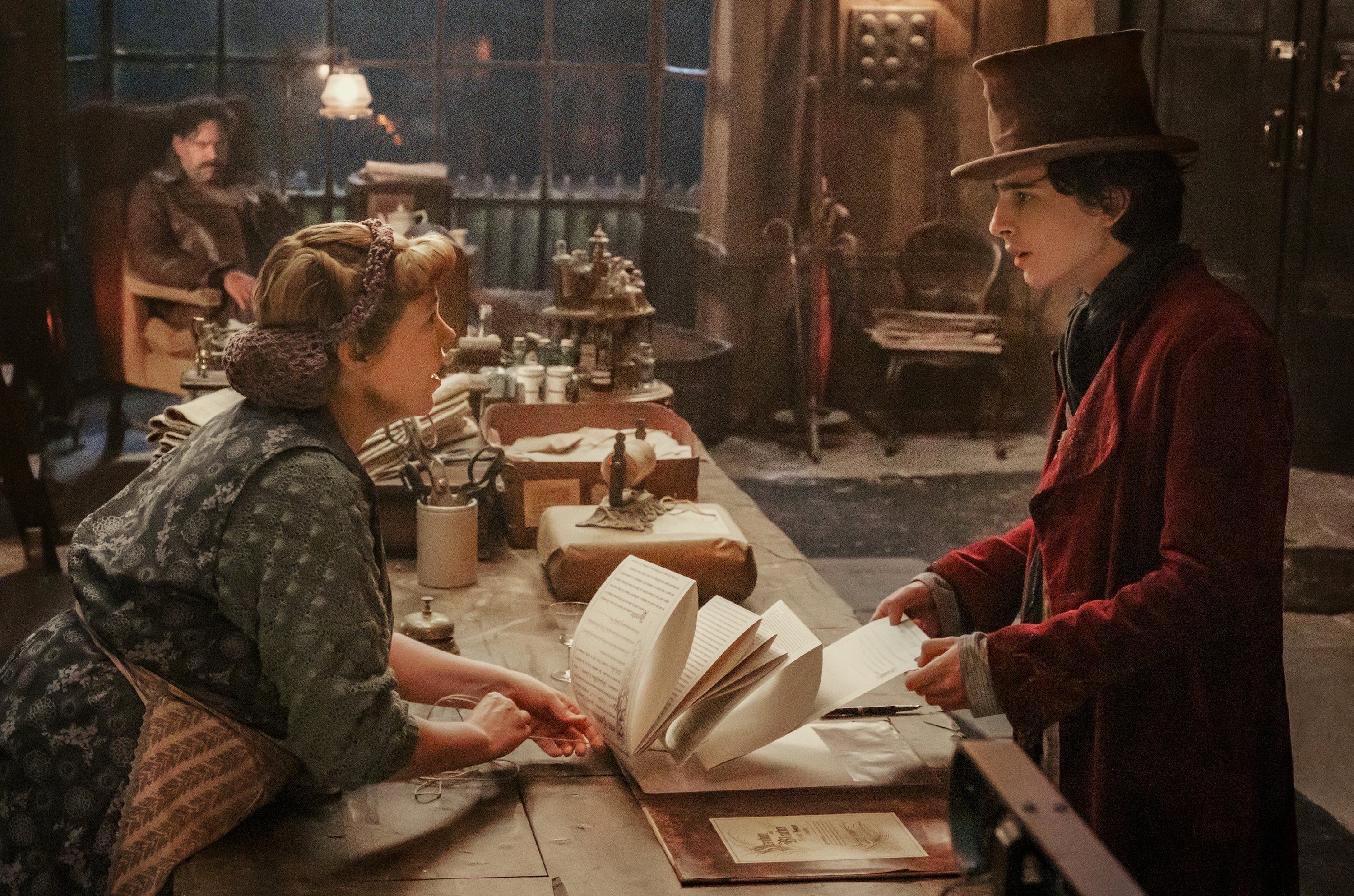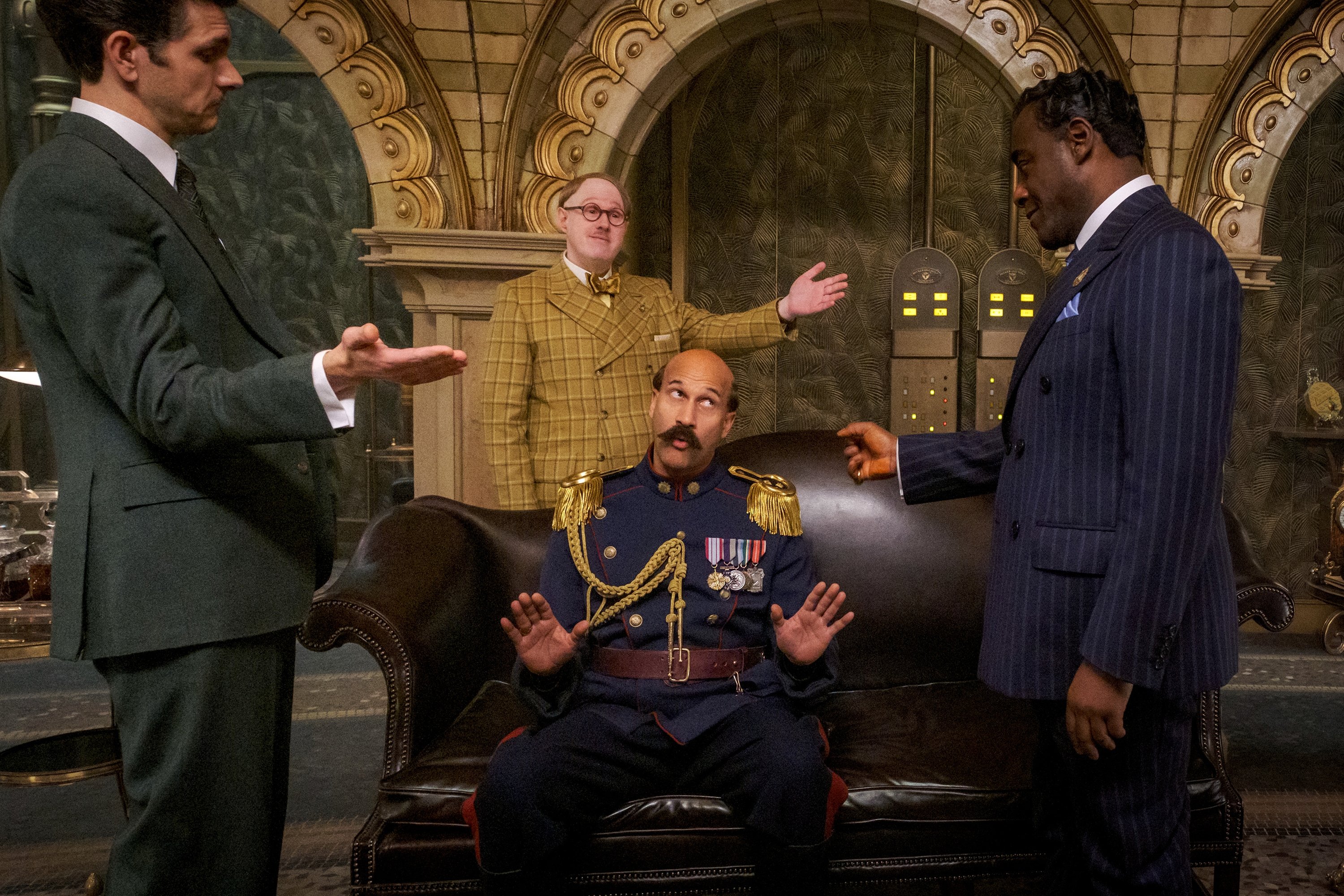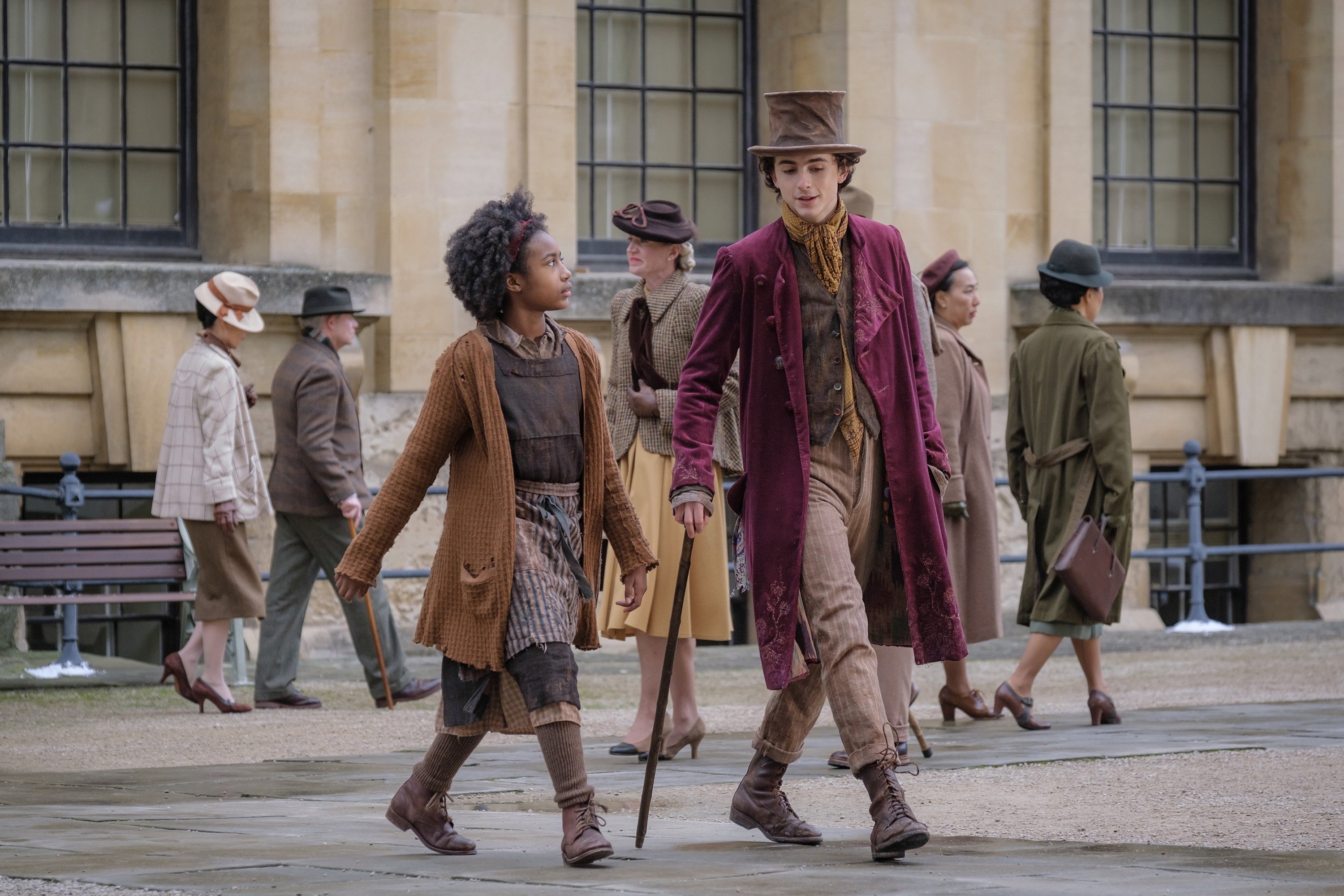© Turkuvaz Haberleşme ve Yayıncılık 2026
Welcome to the clandestine realm of the "Chocolate Cartel," where chocoholics navigate a corrupt society built on cocoa cravings. Frankly, I'd gladly smuggle myself into this tasteful criminal world just for my addiction to all things sweet. You know, like Noodle from the movie who, upon tasting chocolate for the first time, lamented that every day without chocolate feels like a punishment harder than chewing rock candy.
This reimagining of Roald Dahl's famous tale "Charlie and the Chocolate Factory" has been highly anticipated since the beginning of the year. This time, "Wonka" is a musical origins story, portraying the transformation of a young man with dreams of becoming a renowned chocolatier, as well as the inception of his collaboration with the Oompa Loompa universe, led by the talented young actor, Timothee Chalamet, and directed by Paul King –creator of the "Paddington" world.

However, stepping into the shoes of the whimsical, authentic and darker Willy Wonka character previously portrayed by Gene Wilder and Johnny Depp proves to be quite a challenge for Chalamet's fresh portrayal. Instead of competing directly, his rendition offers a glimpse into the innocent world of a young man filled with dreams, attempting to convince himself and those around him of this dream in a naive and childlike manner – a character who doesn't even know how to read or write but is determined to open a grand chocolate shop.
The hopeful chocolatier faces challenges in an unnamed city when he falls into debt at a laundry run by Mrs. Scrubitt (played by Olivia Colman), a character reminiscent of someone plucked out of a Charles Dickens novel, grotesque in her demeanor. Despite forming a team, including the orphan Noodle (Calah Lane), and confronting a corrupt chocolate cartel, his dream of opening a chocolate shop in the Galleries Gourmet – where chocolate giants converge – faces numerous obstacles and sabotage. Yet, with perseverance and allies like Lofty the Oompa Loompa (played by Hugh Grant), Wonka exposes the cartel's crimes, reunites Noodle with her birth mother and starts anew with a new factory, while justice catches up to those who attempted to thwart his dreams.

The Chalamet version of Wonka represents a true embodiment of the American dream theme. He arrives in the city on a ship at the beginning of the film, akin to the Pilgrims' arrival at Plymouth, Massachusetts, following a voyage from England aboard the Mayflower. Much like those pioneers, he's filled with dreams and ideals, yet differs in aspiring to establish a chocolate factory instead of a city upon a hill – a symbol of success and prosperity, where hard work and innovation reap rewards.
However, there's a minor hurdle in this dream world: Daydreaming costs $3.
"Wonka" is definitely not just a children's film. It's filled with clever humor and subtle nuances, making it a strong contender for one of the most entertaining films of the year. But does it completely capture Dahl's world of Wonka sagas? Perhaps not entirely. I wished to witness more of the mysterious transformation and the evolution of the character into the enigmatic Wonka figure we've seen in previous adaptations and Dahl's story.

In 2022, Matt Reeves' "The Batman" offered an authentic experience and an artistic approach, despite the new portrayal of Batman not entirely resembling its predecessors. Yet it contained elements that upheld the continuity of the Batman theme and world. For that, it was successful in prolonging the atmosphere. However, I couldn't entirely find that in "Wonka" as an origin story. While the film is undeniably amusing and delightful, did I completely immerse myself in the Wonka universe and atmosphere, apart from the chocolates? Not entirely.
Nonetheless, the film leaves you with one certain feeling for sure: a strong craving for chocolate after leaving the theater.
